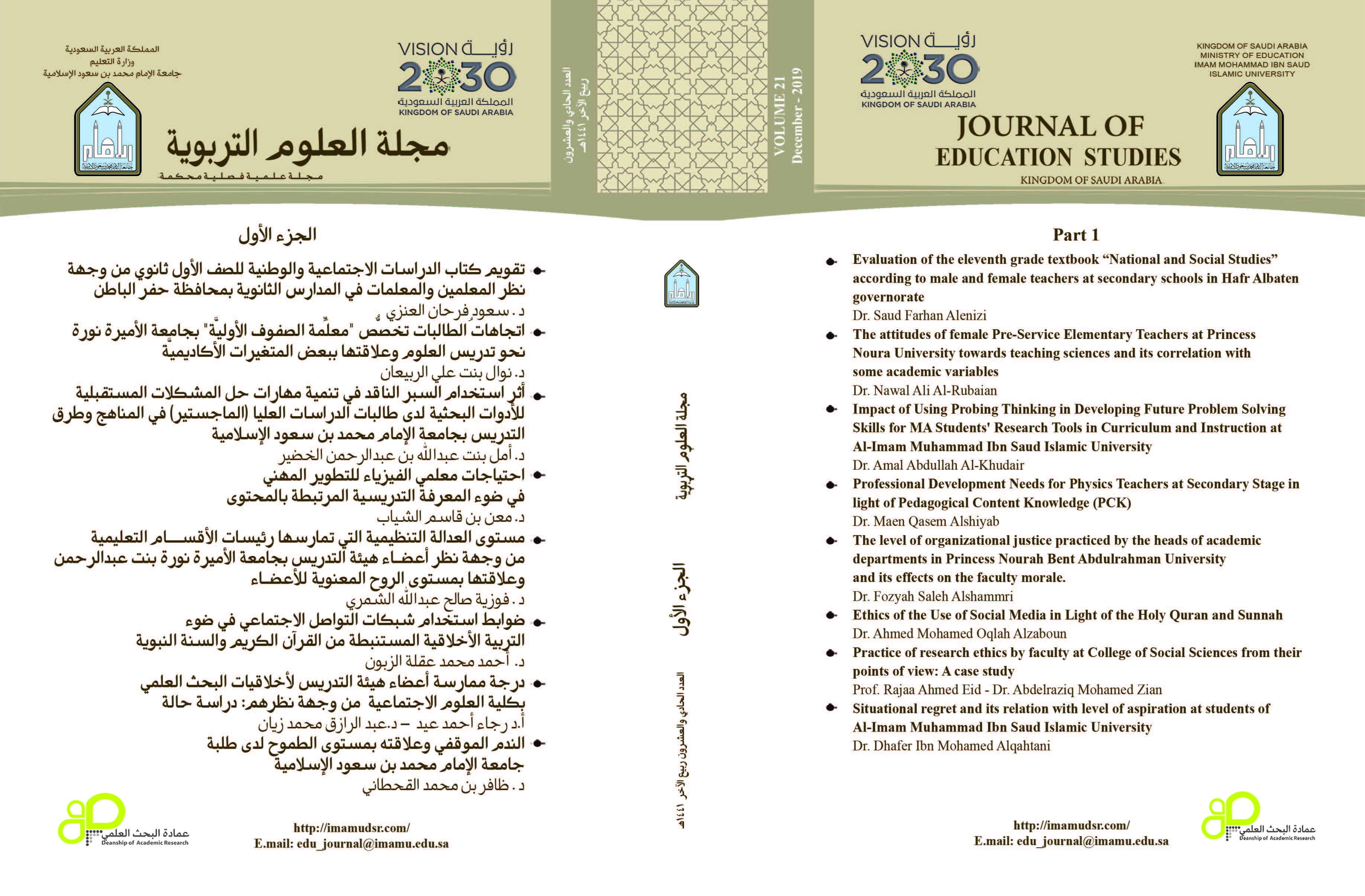Ethics of the Use of Social Media in Light of the Holy Quran and Sunnah
Keywords:
Ethics of communication, social media outlets, ethics, moral educationAbstract
This study aimed at investigating the ethical, social, and cultural ethics for the use of digital social media using a descriptive-analytical research approach. It also sheds light on several ethical values derived from the holy Quran and Sunnah. Some of these values include: Leniency and kindness to others, polite discourse, avoiding cursing. insulting, harsh language, lowering one's gaze, appreciating the favor of Allah represented in technology, realizing that we are constantly being watched by God, being polite, being truthful, being kind, and validating information before relaying it to others. Moreover, the study found the following remarkable social characteristics: Visiting relatives, avoiding bad social customs such as backbiting, slander, mockery and encouraging people to be pious, promoting virtue and forbidding vice, preventing illegitimate man-woman relationships, establishing positive social relationships, respecting the privacy of others and preventing rumors. In addition, the study identified a number of cultural ethics including: not broadcasting news without validation, addressing people properly, respecting Arabic, respecting other people's views, avoiding hacking websites, making use of time, avoiding internet addiction and respecting Islamic values. The study recommended that it is crucial for parents and educators to keep Islamic teachings as a priority for our youth and to make them aware of how to deal with the new technological cyberspace environment in preserving their rights and control their behaviors in order to achieve goodness in their societies.




